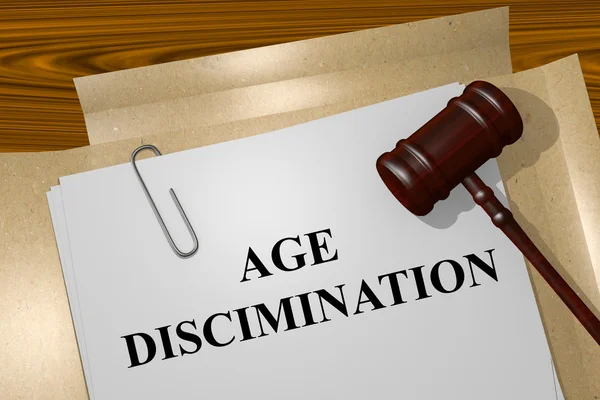Have you ever watched a courtroom drama and wondered what “objection sustained” means? For attorneys and other legal professionals, understanding the sustain the objection meaning and implications of “objection sustained” is crucial for navigating the complexities of the legal process and ensuring a fair trial for their clients. In this blog post, we will demystify the terms “sustain the objection” and “objection overruled” and their significance in the legal world.
From the role of attorneys in raising objections to the impact of sustained motion objections on jury deliberations, we will take you on a journey through the intricacies of the law. So, let’s dive into the world of courtroom objections and explore what “objection sustained” really means, keeping in mind the sustain the objection meaning.
Contents
Key Takeaways
- The sustain the objection meaning is a ruling by the judge that an attorney’s objection is valid and evidence cannot be presented to the jury.
- Attorneys must know common grounds for objections, such as relevance, hearsay, and opinion in order to protect their clients’ rights during legal proceedings.
- They also need to understand the rules of evidence in court and stay professional while advocating for their clients’ interests.
Breaking Down The Sustain the Objection Meaning

During a trial, an attorney might shout “objection” to inform the judge that they believe the opposing party has violated a rule of procedure. The determination the jury can consider when delivering their verdict hinges on whether the judge disagrees or agrees with the objection.
But what does it mean when one attorney announces “objection sustained”? When a judge sustains an objection, it means the judge agrees with the attorney’s objection and decides that the question or evidence is not permissible under the rules of evidence. Consequently, the question cannot be asked, or the evidence cannot be presented to the jury.
The process of ensuring only relevant and admissible evidence is considered in court forms a pivotal aspect of the legal process.
The Role of Attorneys in Raising Objections
The primary purpose of an attorney raising an attorney’s objection during a trial is to protect their client’s rights and interests during legal proceedings. By raising an objection, the attorney is challenging the admissibility of evidence or the relevance of answers to a question being asked of a witness.
When a judge agrees with an objection and sustains it, it means they have determined that the question or evidence is not in accordance with the rules of evidence. This is known as a judge’s ruling. On the other hand, if the judge disagrees and the objection overruled, they permit the question or evidence to be presented in court, providing an opportunity for an answer.
This delicate balance between opposing party attorneys and the judge’s rulings forms the foundation of our adversarial legal system, which is based on the principles of the rule of law.
Judge’s Decision: Sustained vs. Overruled
When an attorney raises an objection, they argue that a particular item of evidence or a specific question should not be allowed in court due to its violation of the rules of evidence. The judge then has two options when ruling on the objection: sustain it or overrule it.
If they disagree and the attorney does not rephrase the question, the judge has to sustain the objection. Similarly, the judge is responsible for making sure that the jury is presented with only admissible evidence. Failing to object to inadmissible evidence can lead to forfeiture of the attorney’s right to appeal the case, making it crucial for attorneys to remain vigilant during trials.
Common Grounds for Objections

There are numerous grounds for attorneys to raise objections in court, such as:
- Relevance
- Unfair/prejudicial
- Leading questions
- Hearsay
- Speculation
- Opinion
- Character evidence
The rules of evidence regulate what is permitted and isn’t permissible for the jury to consider when deciding a case’s verdict. These rules help ensure a fair trial by excluding evidence that could unfairly sway the jury or unrelated to the case.
To effectively challenge the admissibility of evidence or the relevance of an answer to a question asked, attorneys need to grasp the common grounds for objections. With this knowledge, they can better navigate the complexities of the legal process and protect their client’s interests in court.
Relevance and Materiality

In legal proceedings, relevance and materiality form important aspects of evidence and testimony. For particular item or testimony to be admissible, it must be relevant to the case and material to the issues being discussed. By raising objections based on relevance and materiality, attorneys can ensure a focused trial and prevent the introduction of irrelevant or prejudicial information.
For example, an objection may be raised if a witness is asked a question unrelated to the case or if the judge disagrees that a piece of evidence isn’t pertinent to the matters being discussed. By objecting to such questions or evidence, attorneys can maintain a fair trial and reduce the risk of the jury being swayed by irrelevant information.
Hearsay Evidence
Hearsay evidence refers to an out-of-court document or statement presented in court to substantiate the truth of the matter asserted. Generally, hearsay evidence is considered less reliable than direct evidence, as it can be prone to misinterpretation or fabrication. However, there are exceptions to the hearsay rule, such as:
- when the statement is made by a party to the case
- a statement made in furtherance of a conspiracy
- a statement made by a person with firsthand knowledge of the facts
Attorneys must be aware of the nuances surrounding hearsay evidence and its admissibility. By raising objections to hearsay evidence that doesn’t meet the exceptions, attorneys can ensure that only reliable and admissible evidence is presented in court.
Improper Questioning Techniques
Attorneys must adhere to proper questioning techniques when examining witnesses. Some examples of improper questioning techniques include:
- Being superficial
- Asking too few questions
- Using inappropriate language
- Formulating the question asked unclearly
- Guiding witnesses through a series of questions to identify their mistakes
By objecting to improper questioning techniques, attorneys can:
- Protect their clients’ rights
- Ensure that the court obtains accurate and reliable information from witnesses.
- Maintain the integrity of the legal process
- Contribute to a fair trial for all parties involved.
Consequences of Sustained Objections

A sustained objection implies that the judge has acknowledged it, thereby disallowing the question, testimony, record or evidence. The consequences of a sustained objection can be significant, as it prevents the objected information from being presented to the jury or considered by the court when making a judgment.
Attorneys can effectively advocate for their clients’ interests and ensure only admissible evidence is considered in court by understanding the consequences of sustained objections. By raising well-founded objections, attorneys can influence the outcome of a case and safeguard their clients’ rights.
Impact on Testimony and Evidence
Sustained objections can have a substantial impact on the presentation of testimony and evidence during a trial. When an objection is sustained, it prevents a witness from answering a particular question or a piece of evidence from being presented in court.
This exclusion of testimony or evidence can significantly shape the course of a trial. It may prevent the jury from hearing potentially prejudicial or irrelevant information, thereby ensuring a fair trial and an unbiased verdict.
Effect on Jury Deliberations
When a judge sustains an objection during jury deliberations, they order the jury to disregard the evidence or testimony in question. This can greatly influence the jury’s evaluation of the case and the weight they attribute to certain evidence or testimony.
By raising well-founded objections, attorneys can shape the jury’s consideration of the case and potentially sway the outcome in their client’s favor. It is crucial for attorneys to remain vigilant and assert their objections when necessary to ensure a fair and just trial.
Implications for Appeals
Sustained objections can have considerable effects on the appeals process as well. If an attorney successfully objects to the admissibility of certain evidence or the relevance of a question, the court may be more inclined to rule in favor of the party that raised the objection.
Moreover, consistent objections can restrict the data that can be presented in court, potentially influencing the outcome of the case. Attorneys must be well-versed in the grounds for objections and the rules of evidence to effectively navigate the appeals process and protect their clients’ interests.
Cross-Examination and Objections

During cross-examination, objections serve a critical role by enabling attorneys to challenge the admissibility of evidence or relevance of a question posed to a witness. By effectively raising objections during cross-examination, attorneys can protect their clients’ rights, ensure the court adheres to the rules of evidence, and maintain the integrity of the legal process.
In the following sections, we will discuss:
- How attorneys can protect witnesses and clients during cross-examination
- How to ensure compliance with the rules of evidence
- Tips for handling objections in court
Protecting Witnesses and Clients
Safeguarding witnesses and clients during cross-examination is of great importance for several reasons, such as credibility testing, witness safety, and obtaining favorable evidence. Attorneys must ensure that witnesses are not subjected to intimidation or harassment, are not asked leading questions, and are not asked questions that are irrelevant or immaterial to the case.
Should attorneys fail to protect witnesses and clients during cross-examination, the court may sustain an objection and prohibit the witness from testifying, which can significantly affect the outcome of the case.
Ensuring Adherence to Rules of Evidence
Adhering to the rules of evidence during cross-examination is of paramount importance for maintaining the integrity of the legal process and ensuring a fair trial. By raising objections when they believe the opposing counsel is trying to introduce evidence that is not permissible or is in violation of the rules of evidence, attorneys can guarantee that only admissible information is presented in court.
Some common grounds for objections during cross-examination include relevance and materiality, hearsay evidence, and improper questioning techniques. By diligently raising objections when necessary, attorneys can protect their clients’ rights and ensure a fair and just trial.
Tips for Attorneys: Handling Objections in Court
For attorneys in the courtroom, the effective handling of objections is a vital skill. By understanding the rules of evidence, staying calm and professional, and balancing advocacy with respect for the court, attorneys can successfully navigate the complexities of the legal process and ensure a fair trial for their clients.
In the following sections, we will delve into specific tips for attorneys on how to handle objections in court, including knowing the rules of evidence, staying calm and professional, and balancing advocacy with respect for the court.
Knowing the Rules of Evidence

Knowing the rules of evidence is crucial for attorneys, as it empowers them to advocate effectively for their clients and makes certain that court decisions are based on reliable and relevant evidence. By being well-versed in the types of evidence available, such as:
- Direct evidence
- Circumstantial evidence
- Documentary evidence
- Testimonial evidence
By consulting with a lawyer, attorneys can better anticipate potential objections and prepare their arguments accordingly.
Moreover, understanding the significance of evidence and how it can impact a case allows attorneys to strategically raise objections and ensure that only admissible and relevant evidence is considered during the trial.
Staying Calm and Professional
There are several reasons why it’s paramount to stay calm and professional when addressing objections in court. A calm and professional demeanor can:
- Bolster credibility
- Enhance persuasive abilities
- Display respect for the court and the legal process
- Allow for better focus
- Positively influence an attorney’s professional reputation.
By staying composed and professional during the objection process, attorneys can effectively advocate for their clients while maintaining the integrity of the legal process and fostering a positive relationship with the court, opposing counsel, and clients.
Balancing Advocacy and Respect for the Court
While zealous advocacy is a fundamental element of the legal system, it must be balanced with respect for the court and its processes. Whether in a courtroom or working through a lobbying firm to influence legislation, legal professionals must uphold decorum and integrity. Showing respect for the court ensures that proceedings are conducted in a fair and orderly manner and prevents potential sanctions, such as fines or disbarment.
By being mindful of their advocacy and respecting the court, attorneys can better serve their clients’ interests while upholding the principles of justice. This delicate balance is key to navigating the complexities of the legal process and achieving favorable outcomes for clients.
Summary
Throughout this blog post, we have explored the meaning and implications of “objection sustained” in the legal world. From understanding the role of attorneys in raising objections to the consequences of sustained objections, we have delved into the intricacies of the legal process and provided tips for effectively handling objections in court.
As attorneys continue to navigate the complexities of the legal system, understanding the importance of “sustain the objection” and mastering the art of handling objections in court will remain crucial skills. By staying informed, composed, and respectful, attorneys can better serve their clients and ensure a just and fair trial for all parties involved.
Frequently Asked Questions
Why do judges say sustained?
Judges say “Objection Sustained” when they agree that a lawyer’s objection is well taken according to the rules of law, and the ruling is not subject to question by jurors.
What is the difference between sustained and overruled?
When an objection is raised in court, the judge will either say “sustained” to agree with the objection or “overruled” to reject it. Sustaining an objection means allowing it and excluding the evidence, whereas overruling it means rejecting the objection and admitting the evidence.
Is objection sustained a good thing?
Objection sustained is generally a good thing, as it means that the court has identified an inappropriate question and prevented it from being answered.
What are some common grounds for objections in court?
Objections in court can typically be made on the grounds of relevance and materiality, hearsay evidence, and improper questioning techniques.
What is the role of an attorney in raising objections?
An attorney’s primary role in raising objections is to protect their client’s rights and interests during legal proceedings.




